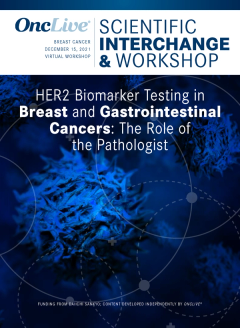
Dr. Singhi on the Importance of Multidisciplinary Care With Pathologists in Cancer
Aatur D. Singhi, MD, PhD, discusses the importance of facilitating multidisciplinary conversations that include pathologists in cancer care.
Episodes in this series
Aatur D. Singhi, MD, PhD, surgical pathologist, associate professor of pathology, member, Divisions of Anatomic Pathology and Molecular Genomic Pathology, director, coordinator, Anatomic Pathology Research, director, University of Pittsburgh Medical Center (UPMC) Developmental Laboratory, Department of Pathology, UPMC, discusses the importance of facilitating multidisciplinary conversations that include pathologists in cancer care.
How to best facilitate communication between different subspecialities of cancer care is an evolving topic, particularly during the COVID-19 pandemic, Singhi says. However, it ultimately requires significant communication that can be started in tumor boards. Tumor boards allow for specialists from medical oncology, pathology, radiology, pain management, and others to interact and discuss the patient’s care, Singhi says.
With the influx of targeted therapy options, treatment selection should incorporate not only the tumor type the patient has, but their comorbidities as well. For example, a patient with cardiac issues may not be eligible for the treatment at all, Singhi explains. Facilitating those discussions starts in a multidisciplinary tumor board where new data and different perspectives can be weighed against the patient’s individual situation, Singhi concludes.








































